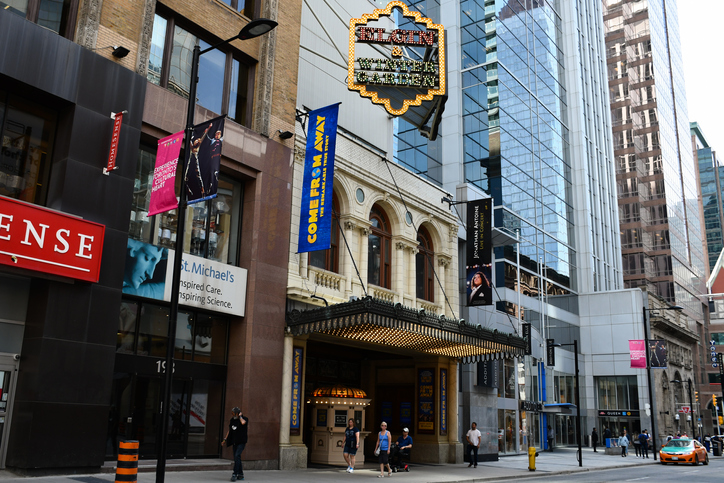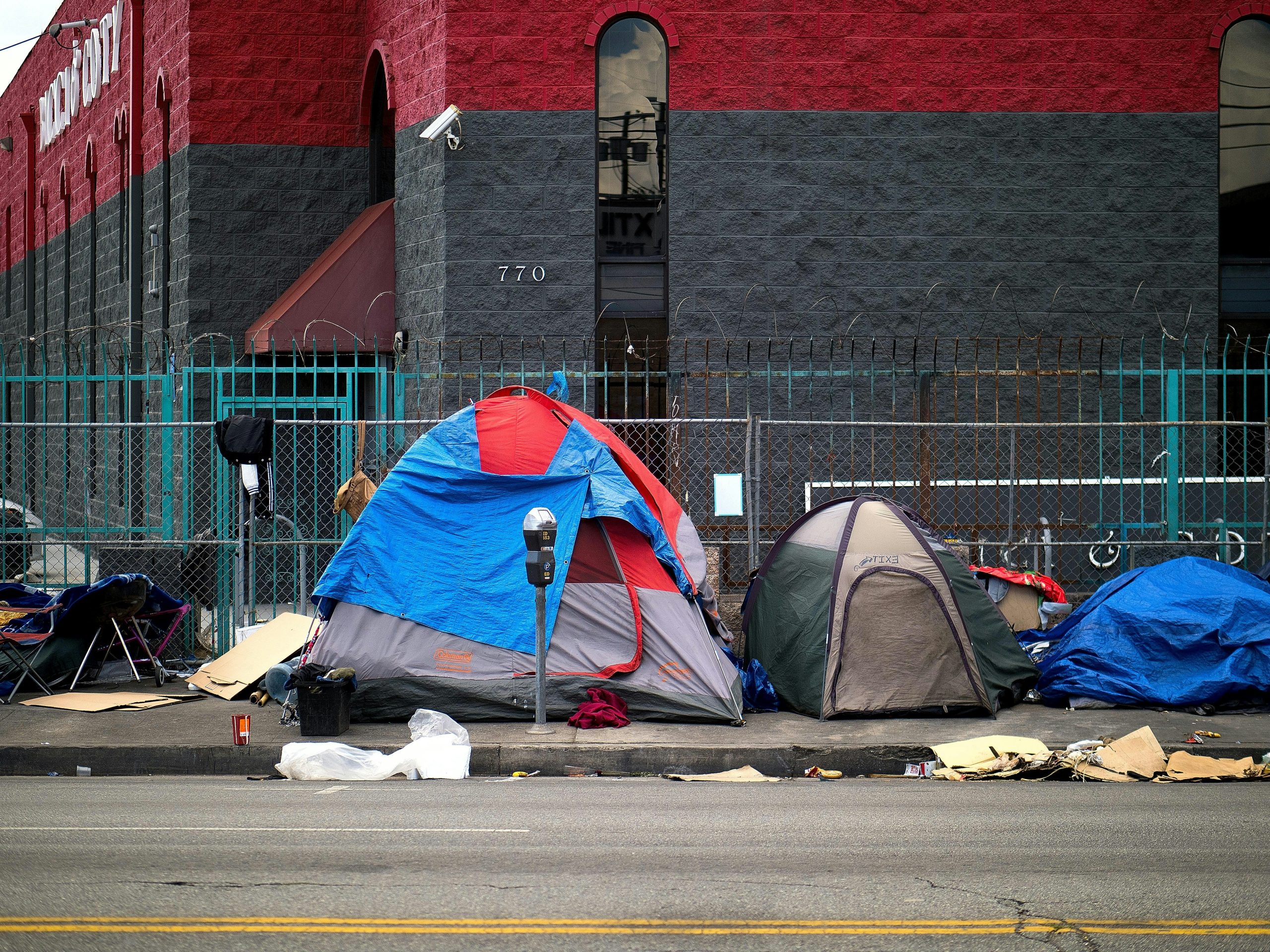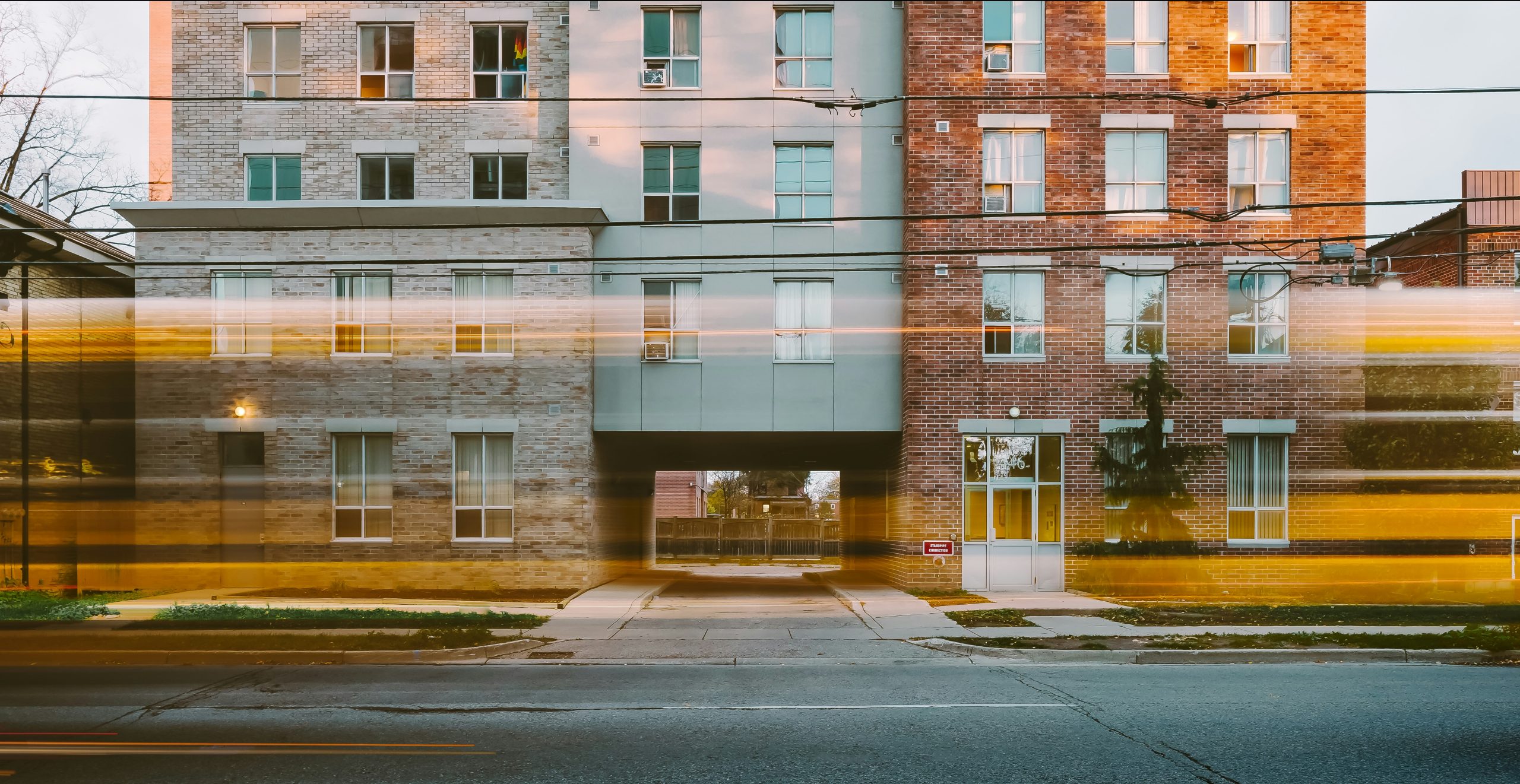Featured Guest
You’ll find this guest among our growing roll of Urban Champions.
Canada’s hospitality, culture and tourism sectors are completely connected to the dynamism of our downtowns. Locals and tourists come to ‘the city’ for experiences they can’t find anywhere else. These activities create jobs and generate millions in tax revenue for all levels of government. Months of lock-downs have left these key sectors of our economic and civic life in a precarious position. What actions are needed to support this industry and bring people back downtown?
Full Panel Transcript
Note to readers: This video session was transcribed using auto-transcribing software. Manual editing was undertaken in an effort to improve readability and clarity. Questions or concerns with the transcription can be directed to events@canurb.org with “transcription” in the subject line.
Full Audience Chatroom Transcript
Note to reader: Chat comments have been edited for ease of readability. The text has not been edited for spelling or grammar. For questions or concerns, please contact events@canurb.org with “Chat Comments” in the subject lin
From Canadian Urban Institute: You can find transcripts and recordings of today’s and all our webinars at https://canurb.org/citytalk
03:53:31 Canadian Urban Institute: Welcome back everyone! A friendly zoom reminder, you can see and hear us but we can’t see or hear you Our summit is being offered in both French and English. Please click on the globe at the bottom of your screen and select your preferred language. We are recording today’s session and will share it online at www.canurb.org/citysummit We hope this summit is as interactive as possible, so please feel free to share comments, references, links and questions in the chat. 03:53:38 Puneeta McBryan: @Cherie 😉 03:54:03 Zelda Brown: Another fun tidbit: https://www.londoncityofmusic.ca/ The UNESCO Creative Cities Network (UCCN) strives to promote cooperation with and among cities that have identified creativity as a strategic factor for sustainable urban development. https://en.unesco.org/creative-cities/home Canadian Urban Institute: We are going to jump right into our next session “Downtown Dynamism: Rebuilding Hospitality and Culture”. Canada’s hospitality, culture and tourism sectors are completely connected to the dynamism of our downtowns. Locals and tourists come to ‘the city’ for experiences they can’t find anywhere else. These activities create jobs and generate millions in tax revenue for all levels of government. Months of lock-downs have left these key sectors of our economic and civic life in a precarious position. What actions are needed to support this industry and bring people back downtown? Joining us today are: Beth Potter, CEO, Tourism Industry Association of Canada Michael Rubinoff, Theatre Producer and Founding Producer, Come from Away Erin Benjamin, President, Canadian Live Music Association Tarun Nayar, Executive Director, 5X Festival 03:54:21 Stephanie Beausoleil: @Zelda Thank you 03:55:21 Stephanie Beausoleil: Right on Mary! 03:56:28 Canadian Urban Institute: Beth Potter is the President & CEO of the Tourism Industry Association of Ontario (TIAO). TIAO advocates to create an environment for growth for tourism. With more than 25 years of experience in the not-for-profit sector, Beth has worked with a variety of boards, committees and volunteers from all walks of life. Current board positions include: Metro Toronto Convention Centre; Ted Rogers School of Hospitality & Tourism Management Advisory Council; and the Ontario Chamber of Commerce. 03:56:56 Canadian Urban Institute: Michael Rubinoff is a Toronto based Olivier Award winning and Tony Award nominated producer who conceived the international hit musical Come From Away. In 2011 he established the Canadian Music Theatre Project (CMTP), an international incubator for the development of new musicals, where he produced and developed the first workshops of Come From Away and 29 other musicals. In 2019 he was awarded the Meritorious Service Cross by the Governor General of Canada for his role in creating Come From Away. Upcoming: world premieres of the new Canadian musicals Grow, at London’s Grand Theatre April 2022, and Johnny Reid’s Maggie. He is the co-founder of M/Y storycreative, https://www.mystorycreative.com an agency dedicated to empowering creators, thought leaders, industry innovators and organizations to realize their full creative potential. A proud graduate of Western Law. Social @mrubinoff 03:57:32 Laura Wall: Attending live theatre between lockdowns last summer I was overwhelmed with emotion – miss live arts and cultural experiences so much 03:57:34 Canadian Urban Institute: Erin Benjamin is the President & CEO of the Canadian Live Music Association since its creation in 2014. Erin Benjamin has worked in the Canadian music industry for over 25 years – first as a touring and recording artist and then as executive director of both Folk Music Ontario (2001) and the Canadian Arts Presenting Association (2008). Founder of the Ottawa Women in the Music Industry group and a passionate, highly-regarded leader, Erin currently serves on the Ontario Ministry of Tourism, Culture and Sports’ Ontario Live Music Working Group as co-chair, Ontario Creates (formerly the OMDC) Music Industry Advisory Committee, Algonquin College’s Music Industry Arts Advisory Committee and is a board member the Unison Benevolent Fund, MEGAPHONO and RBC Ottawa Bluesfest. 03:57:48 Canadian Urban Institute: Tarun Nayar is Executive Director of 5X Festival, Canada’s largest South Asian youth event. He is a board member of the Canadian Live Music Association, a member of FACTOR’s Diversity and Inclusivity Committee, and the leader of the 2019-2022 Music BC Trade Missions to Mumbai. Tarun manages emerging Pakistani-Canadian electronic artist Khanvict, and is the co-founder and owner of digital label Snakes x Ladders which focuses on the new wave of hybrid South Asian artists. Trained formally in Indian Classical Music from the age of 7, Tarun’s involvement in Vancouver’s underground electronic music scene in his early 20s led to the formation of well-known Canadian band Delhi 2 Dublin in 2006. He has since led the band to Glastonbury (UK), Hardly Strictly Bluegrass (US), Woodford (AUS) and almost 2000 other club and festival gigs around the world. Tarun is passionate about creating opportunities in the arts for people of colour. 03:58:32 Judith Cox: Mariposa Folk Festival, Orillia Ontario👍👏 03:58:52 paul mackinnon: Anytime restauranteurs feel bad for themselves, they consider the last 2 years for arts and culture sector. Yikes! We need to get live events back! 03:59:13 Emily Herd: So great having Delhi 2 Dublin at Edm Folk Music Festival – multiple years! 04:00:21 Kay Matthews: Great to see you Beth! 04:00:28 Judith Cox: Our village of Coldwater , misses our Village Players Theatre productions!! Sad not to have our cultural events 04:00:48 Tarun – 5X Festival: Thanks Emily! 04:03:28 Tzu Chen Wang: Slightly confused, if its 40km from where you are located, how did you define the industry to be at 105 billion? 04:03:31 Ross Jeffeson: Great point, tourists vs. visitors. Little know fact, on average 1 in 37 people in the Halifax region is an overnight visitor. This is similar to other cities. that is an important part of the culture of a community. 04:03:46 Ross Jeffeson: 1 in 27. sorry typo 04:05:22 paul mackinnon: Normally Canadians leaving Canada for tourism spend 2x what international visitors spend in Canada. Conference board of Canada is predicting that 2022 summer will be larger than 2019 – because people will be wiling to travel within Canada more than internationally. Is the tourism industry ready for this? Will arts venues be fully open/staffed? 04:05:53 Shannon Bowler: Bravo Erin and the CLMA on your tireless advocacy the past 2 years! 04:05:55 Ross Jeffeson: Paul, great point! 04:06:21 paul mackinnon: It should be Ross- I got all that info from you! 04:06:42 Ross Jeffeson: Erin, this is absolutely true. Capacity to host is critical. 04:06:56 Mark Garner: Downtown Yonge is planning our key recovery when we open back up to be Arts and Culture. This is based on the economic contribution it makes to our neighbourhood and the City of Toronto 04:08:21 Stephanie McCracken: Love this story of interconnectedness Mary! 04:10:17 Kay Matthews: Artists are like many small businesses, they are sole proprietors and therefore have fallen through the cracks regarding supports. 04:10:40 Judith Cox: Exactly Kay! 04:10:59 susan wright: New York just announced universal basic income for artists: https://www.timesunion.com/hudsonvalley/news/article/guaranteed-income-program-for-NY-artists-16722374.php?fbclid=IwAR3rpleYcklX2E2UqGuP9GL9snua83ksshvG81iuMKWPMgzUfNjh3CVHcBU 04:11:27 Kay Matthews: Was Basic Income for all Canadian an opportunity that was missed??? 04:11:54 paul mackinnon: Support for a basic income seems to be pretty broad, across the political and sectoral spectrum. Never heard the case for how this might spur creativity amongst artists though. Have there been any studies on this? 04:12:20 Sophia Symons: We talked a lot about bringing back office workers from remote work back in person, but should we be focusing more on artists and industries that are more in need of a downtown space? 04:13:34 Shannon Pratt: so many artists are currently struggling to create because they are so worried/busy with trying to figure out new income streams aside from their artistic practice 04:15:30 Cherie Klassen: Yes. Infrastructure for arts and entertainment is at risk. We have many theatres in our BIA, one being a heritage theatre that is falling in disrepair and been vacant for nearly 2 years. 04:15:36 Canadian Urban Institute: Just a reminder, please change your chat settings to “everyone,” so all attendees can see your questions and comments. 04:15:48 Laura Wall: Meanwhile leases? Brilliant! 04:15:50 Adriana Dossena: Pre-covid, there was already a space crunch for arts & culture innovation, creation for emerging artists could there be an opportunity for more creative use of common spaces that can engage more community members, intergenerational activity? 04:16:10 paul mackinnon: One of the great mysteries is why landlords don’t seem to want activations in their vacant storefronts. 04:17:00 Blaire Prima: If everyone went back to work in Calgary, downtown would still have a 33% vacancy….said yesterday 04:17:08 Alysson Storey: Ireland recently announced a basic income for artists (not sure if this was mentioned previously) – https://www.businessinsider.com/ireland-basic-income-program-artists-entertainers-ubi-coronavirus-nightlife-2022-1 04:17:18 Gelare Danaie: If we share the idea with developers that activation and events are going to make them actually make more they may become partners 04:17:25 susan wright: Also spaces are being lost because artists can no longer afford to pay due to pandemic – this is especially true of musicians 04:17:46 Geoff McCausland: Speaking to smaller venues: Touring in Canada was practically impossible before the pandemic. It was unfortunately normal for our band to get a couple free drinks and make a couple hundred bucks to split between 6 members, a sound tech, find your own place to stay, feed yourselves and pay for the gas of driving across Canada…Touring in Europe was a whole other world, where things were appreciated and people willing to support and pay. My great hope is that we will want to go back out so much to see live art and finally be willing to pay more than $5 cover to go see a band coming to town. Here’s a question I was hesitating asking: I love the playlist but were any of the artists compensated for their music? 04:18:01 Mark Garner: same as we look to repurpose employment clusters as opportunities we need to do the same for arts and culture, performance space, practise space, incubator space 04:19:06 Mark van Elsberg: When the developers “found” Queen West the City developed a NoNetLoss policy where Artist space had to be replaced in place. Similar policy should also happen to other economic assets . Hotels, Theatres etc.. similar to rental housing replacement 04:19:08 Kay Matthews: Not a niche, but an important eco-system that main streets have, they hire the artists in the restaurants and festivals. There are often arts co-ops, local theatres and galleries. 04:19:23 Shannon Bowler: We need to capitalize on the renewed public appreciation and positive sentiments towards arts and culture – how they see it as vital to their own lives and the fabric of their communities and worthy of investment. Artists, festivals, and cultural orgs have a lot to offer when it comes to collaborative placemaking. They should be core to downtown renewal efforts 04:20:06 Michael Trent: The culture ecosystems must also include rural activities and experiences. 04:20:22 paul mackinnon: Because we could not count on large attendees, last year NS concentrated on many, many small live music events – on streets, in parks, in cafes, etc. We branded it as “Patio Lanterns” (any Kim Mitchell fans here?). Worked well, had govt and biz support and employed lots of musicians. 04:20:29 Kay Matthews: Some BIAs have a Vision around being Arts Hubs, such as Downtown Yonge. 04:20:51 Mark Garner: How do we protect cultural corridors that are current designated in our cities to ensure we don’t develop out the reason why we live in these neighbourhoods 04:21:04 Alysson Storey: @Geoff – I am a musician and also play in a band and I completely relate to your post. Live music on a smaller scale was almost impossible in the Before Times. I share your hope (fervently!) that there will be more of an appetite to pay a reasonable amount as consumers of arts and culture. 04:21:21 Kay Matthews: As a friend of mine once said, artists can die of exposure (can you sing for free, you will get lots of exposure) 04:21:36 Alysson Storey: Bingo Mark!! So many neighbourhoods like this are almost “victims of their own success”. 04:21:45 Tzu Chen Wang: we should no longer see rent as the only way to use commercial spaces 04:22:19 Kerry LeBlanc: here Michael> get away from the computer! 04:22:24 Rachel Braithwaite: I feel landlords know artists have been hardest hit through the pandemic and as such are reluctant to rent to them because they want a guaranteed income. We definitely need to shift the value. 04:22:29 Kay Matthews: Our main streets are all about “creating human interactions” and arts is a key part of that. 04:24:18 Alysson Storey: Amen Beth! 04:24:21 Adriana Dossena: the arts support cross sectoral collaborations through hosting & convening through events – how can these skills be mobilized to support decision makers navigate through the coming challenges, determine common goals & desirable outcomes? eg. Dancers providing tailored training programs for health workers to help destress on a long shift to facilitating operations and building managers through covid, with programming, education, data visualization, community engagement, mental health & well being, modelling & implementing pop up way-finding & cultural programming 04:25:15 Lorne Cutler: Can you get enough people back into the core until they are willing to get back onto public transit. Since it is hard to drive and park downtown (and not everyone can walk or bike), until people are willing to get onto a crowded bus or subway car, it may be hard to fill up big events in the core. 04:25:29 Cherie Klassen: We’ve had some arts events and markets set up in a large vacant retail space on our main street. Last year, there was live music in the windows being piped out onto the street. This year, the artists will be set up in businesses. 04:25:31 Judith Cox: I agree Kay, our downtown survives and thrives from our fun and cultural events. Without them in the past 2 years, our businesses and organizations are suffering! 04:25:51 Jacoba Knaapen: Spaces need to be accessible as well as affordable, and … equipped! Open empty spaces are not necessarily going to serve the theatre creation process; ie: dance studios need sprung floors, theatre rehearsal spaces benefit the rehearsal space when equipped with a lighting grid, a sound board, etc 04:26:05 Kerry LeBlanc: Thanks Lorne. I AGREE. UNTIL THE FEAR IS GONE NONE OF THESE GREAT IDEAS WILL GROW. SORRY CAP LOCK ON. 04:27:45 Mary Filipetto: “Hoteling” uses in adaptive spaces 04:27:54 Cherie Klassen: Agreed Mary! Never waste a good crisis! We’ve innovated and moved quicker with trying new things than we ever had, so let’s not stop. 04:28:04 Tzu Chen Wang: supporting local means more than residents in the community supporting the establishment; it requires landlords treating the tenants as customers. I think Jacoba made a very good point! 04:28:07 Alysson Storey: It would be such a shame if we went back to the “old normal”. 04:28:37 Catherine Deegan: Port Credit used to host segments of “The Comedyfest” in a church, interesting experience. 04:33:08 Jane Barkley: Catherine Deegan, I’ve worked with that comedy fest for years! Port Credit was one of 3 communities we’ve worked in and COVID has been devastating for them (as with all other events). 04:34:21 Clint Wensley: While as President of the Plaza of Nations in Vancouver, I opened the doors and sponsored many local, cultural organizations which created a great balance and revenues for the local area. A vacant space, is just that. 04:35:09 Gloria Venczel: Fundamental to small business viability issues are the phantom-tax standard tax assessments based on highest and best use in the Official Community Plans, w/o a rezoning. Disastrous system in a specultative , hot market. Current tax regime imlemented at a time when Canada was a nation of fur traders + subsistence farmers. Canada is now 82% urban, with cities as the economic and innovations drivers of the country. Cities need a New Green Deal, including a bigger piece of the tax pie (especially w/ all the senior gov’t “out of scope” downloads). 04:36:58 Clint Wensley: Covid 19 made the music & entertainment business lose 12 million jobs globally. 04:37:13 Alysson Storey: Another great discussion – I have been waiting fo this one for two days! 🙂 Really appreciate the insight from all the panelists. Your insight is critical. 04:37:14 Canadian Urban Institute: Thank you Erin, Tarun, Michael, and Beth. We are going to take a quick 15 minute break and return at 4:30pm ET for our next session “Challenges and Opportunities for Anchor Institutions to Rebuild Downtowns: Post-secondaries” with Dr. Joy Johnson, President and Vice Chancellor, Simon Fraser University, Burnaby Vancouver Mohamed Lachemi, President and Vice Chancellor, Ryerson University, Toronto. This session will be moderated by Stephen Phillips, Senior Vice President, Business Leader, Buildings, Stantec. 04:37:26 Catherine Deegan: Jane, yes definitely impacted by COVID, I used to be Event Project Manager for Mississauga Waterfront Festival also affected by COVID 19 as it used to attract over 60k visitors over a 3 day period in summer, having said that though the organization did take the opportunity to innovate and held a smaller event in the winter with a light and ice sculpture installation – it was well received 04:37:50 Alysson Storey: Yes please! Another HUGE vote here for Come From Away to return! 04:37:51 Cherie Klassen: Fantastic conversation. Thank you! 04:37:53 Nicole Auger: Thank you all for such an important discussion! 04:38:37 Shannon Bowler: Great discussion, thanks to the panelists 04:39:23 Adriana Dossena: Thanks for great conversation! 04:40:36 Clint Wensley: I hope is ok, if I put a plug in….My company Is Media Façade Americas, and we have co-created the largest year round Cityscape shows on earth. Massive tourism opportunities proven 04:40:41 Stephen Watt: Great presentation. Thanks 04:46:14 Voncelle Volté: ⚡ Raise your hand, if you are dancing and singing to the CUI Playlist … in-between these thought-provoking sessions … 🎼 “Downtown …”💃🌻🌻🌻 04:47:26 Christopher Tweel: yes I am dancing to it ..!! 04:48:01 Jamie (she/her), Canadian Urban Institute: We’re so glad that you are loving our playlist. You can listen to it anytime here: https://open.spotify.com/playlist/2FYY7rZ9QiTZ8opbfTQyWA?si=r8LgYX6JQ2yCpoDn6rMmqA&fbclid=IwAR0ewKrR7UX7Uoqv24mDlQN_jZ_bUVysDKY-7HFGjYofpLBkKCjniJkIK1E&nd=1 04:50:46 Stephen Watt: It’s a very nice touch for the breaks and ability to see stats during break. I will incorporate the tactic in my future presentations where appropriate. 04:53:46 Brian Owen: @jamie CUI The segue music is great! If you want to compile it and share it with the attendees I would suggest creating a Spotify Playlist that would be publicly available and then provide the link to everyone, otherwise there could be Digital Rights Management issues and someone screaming about their royalties. Just my opinion and thought.


